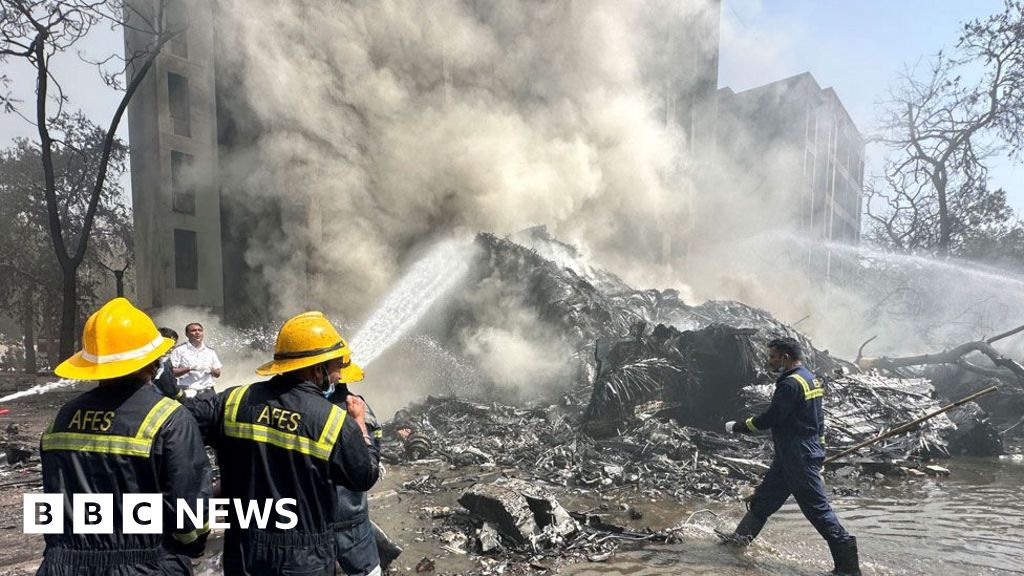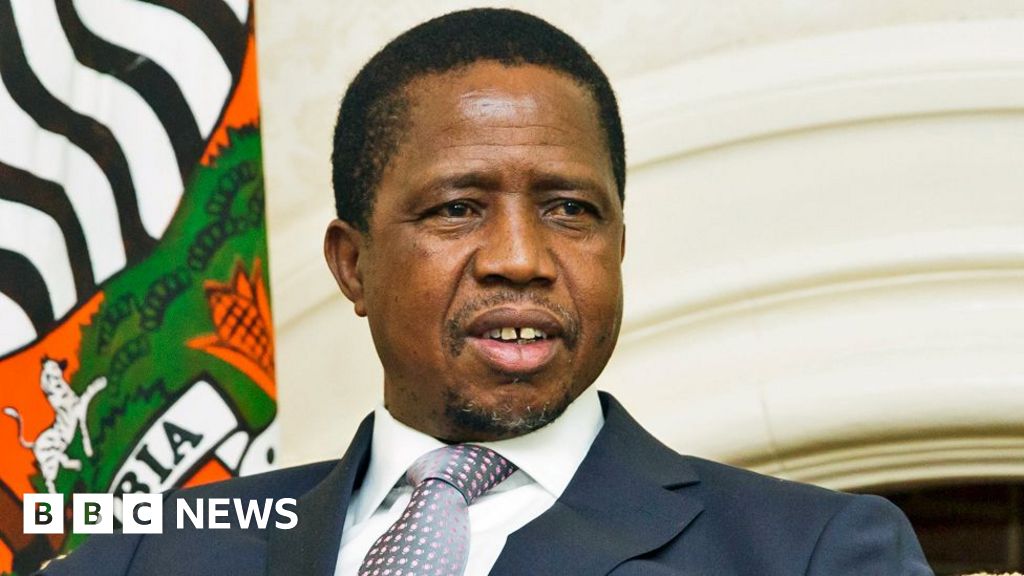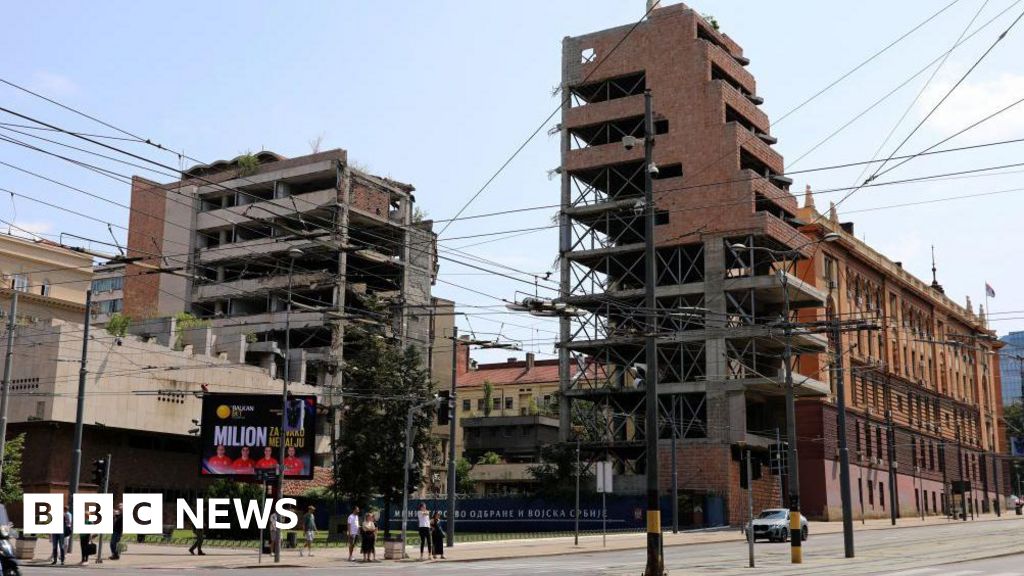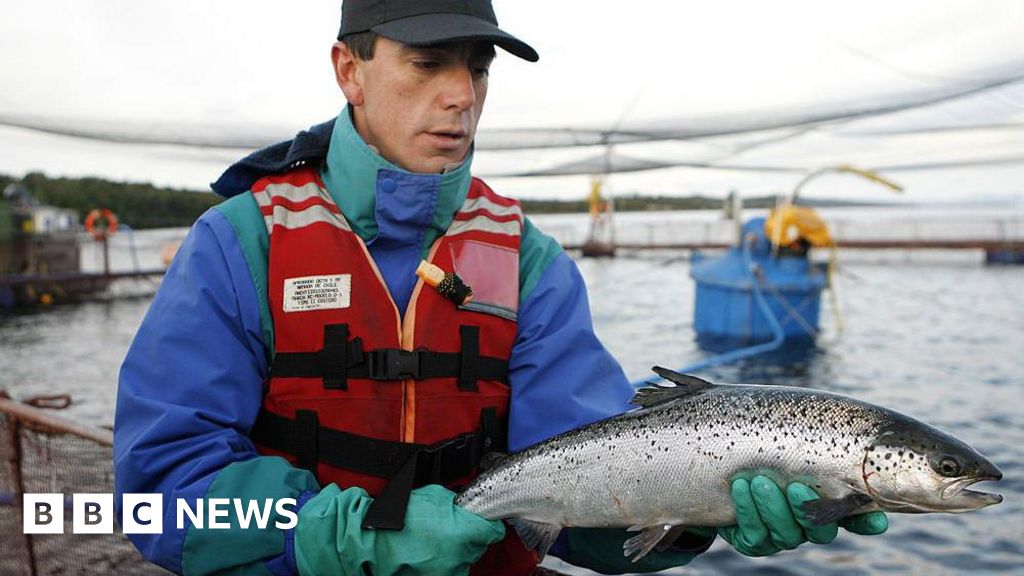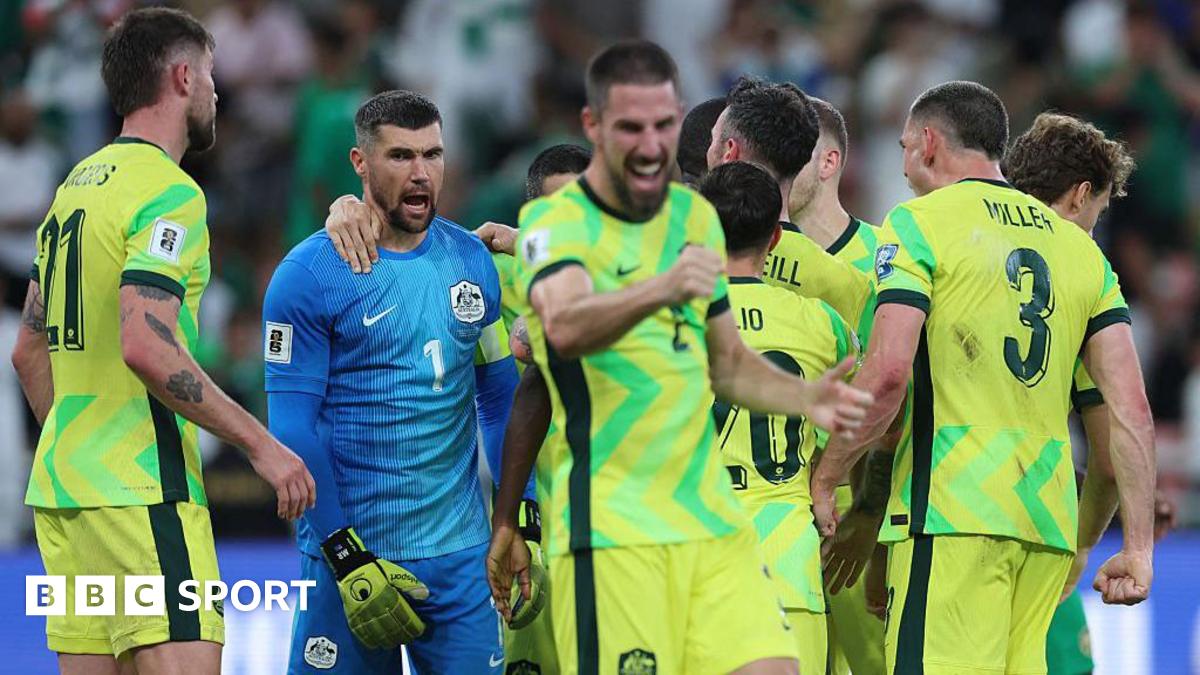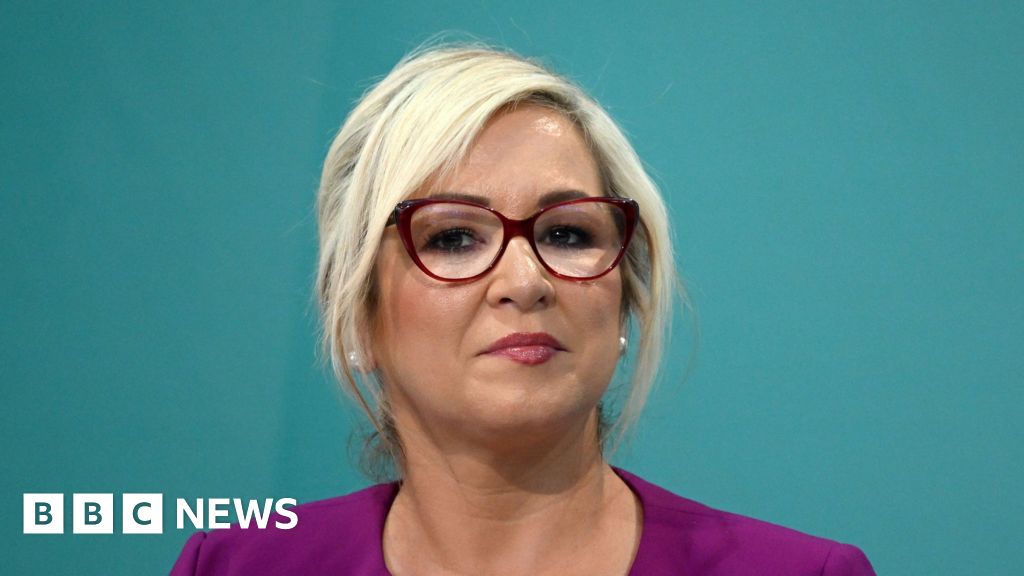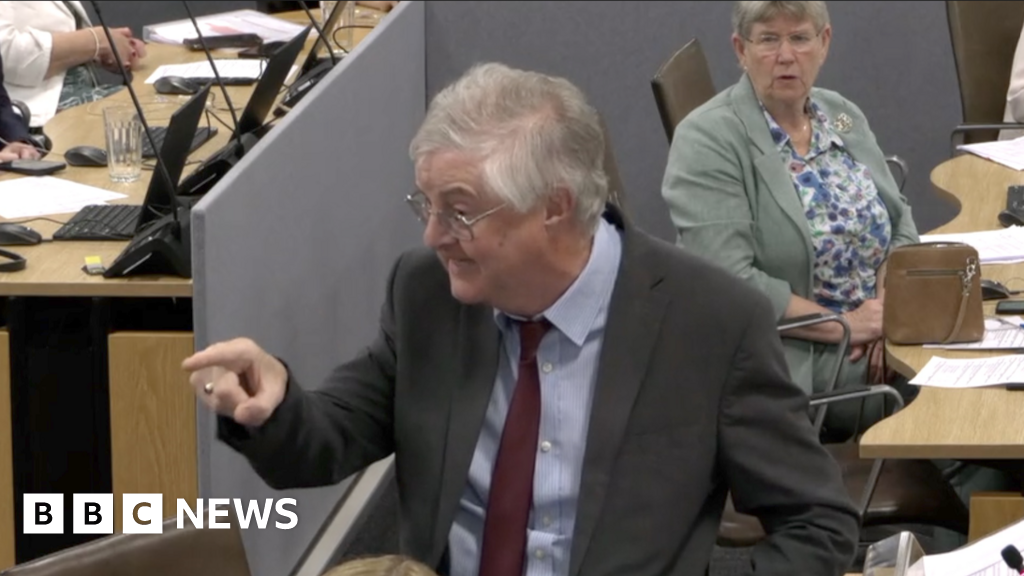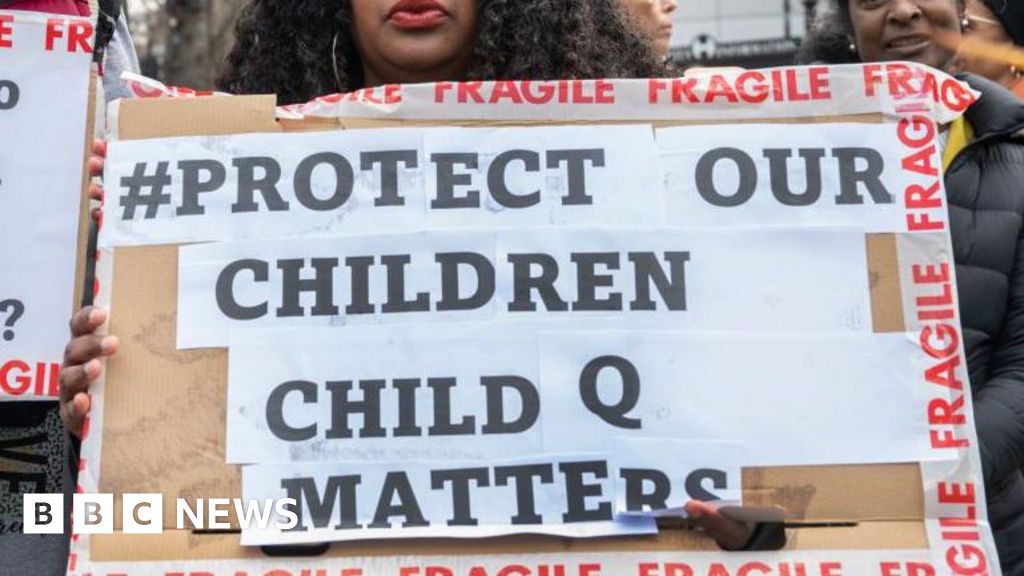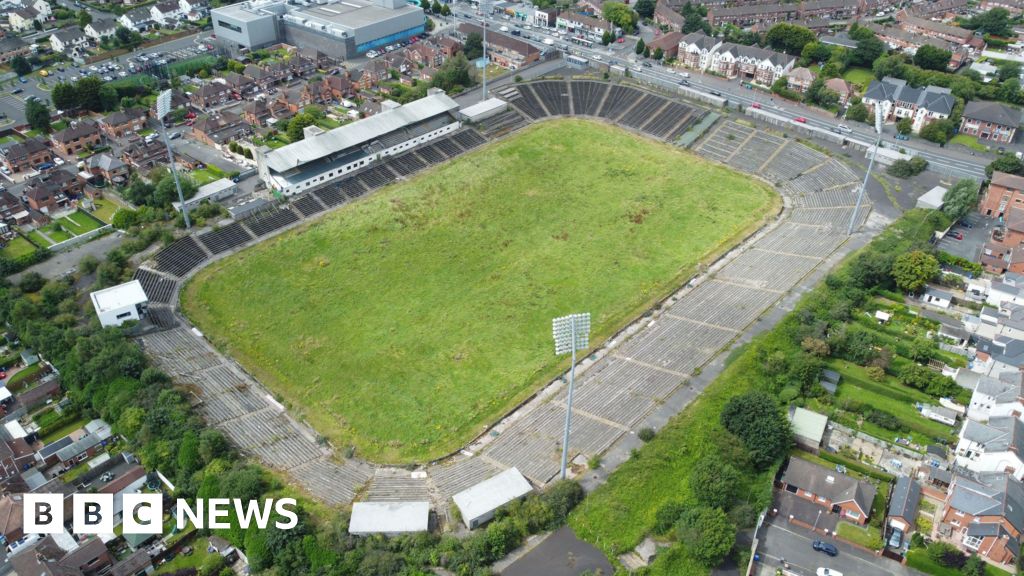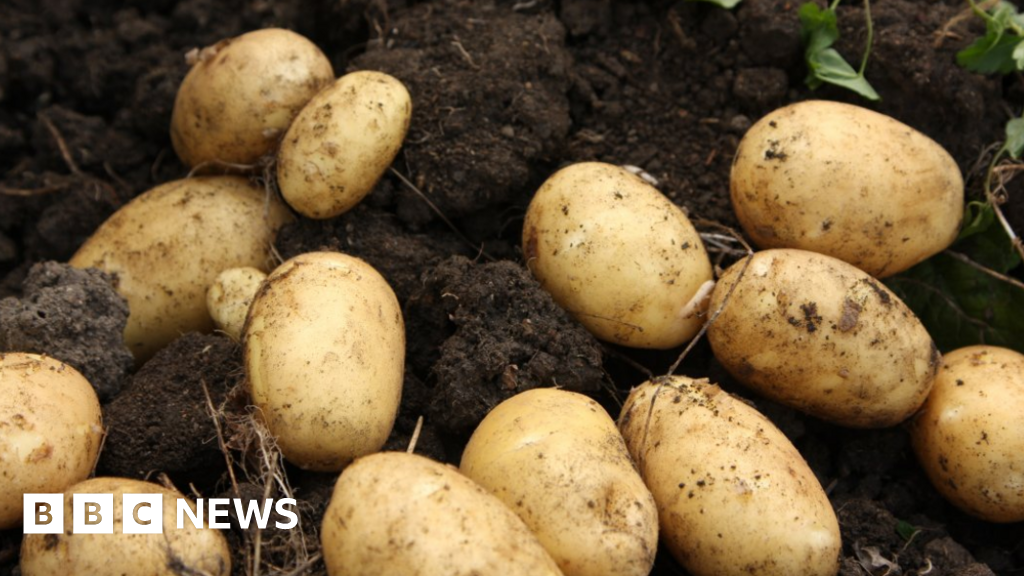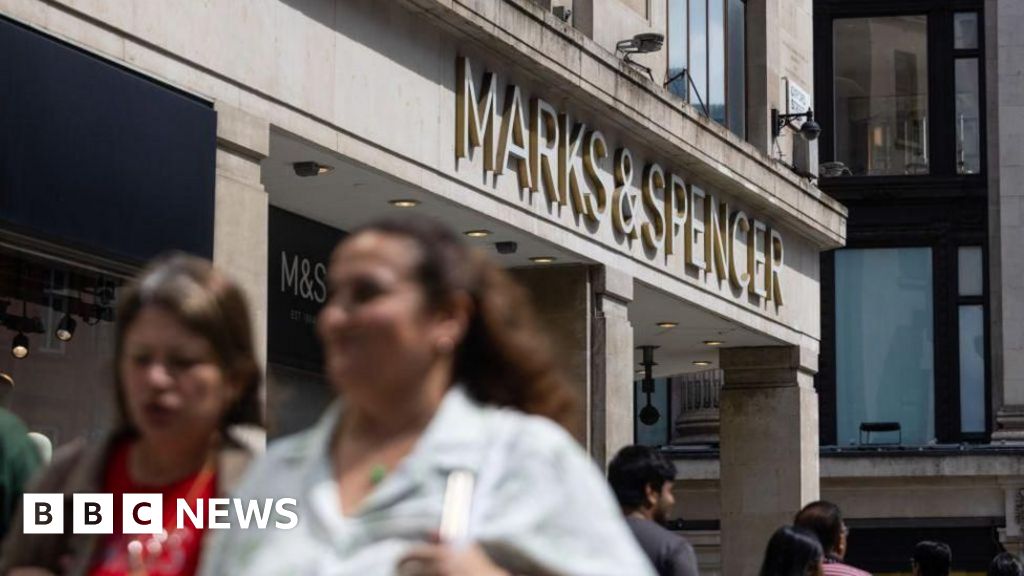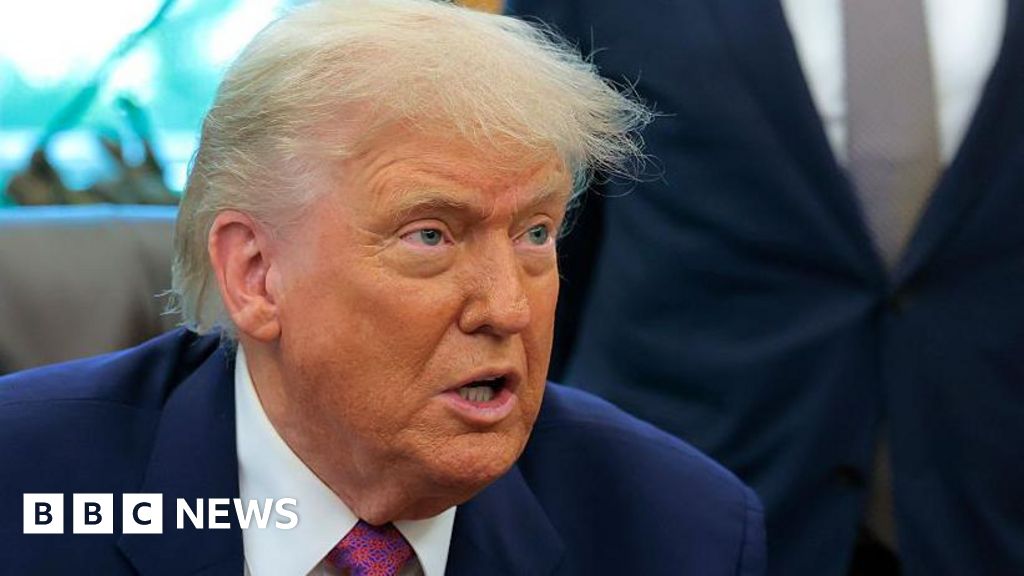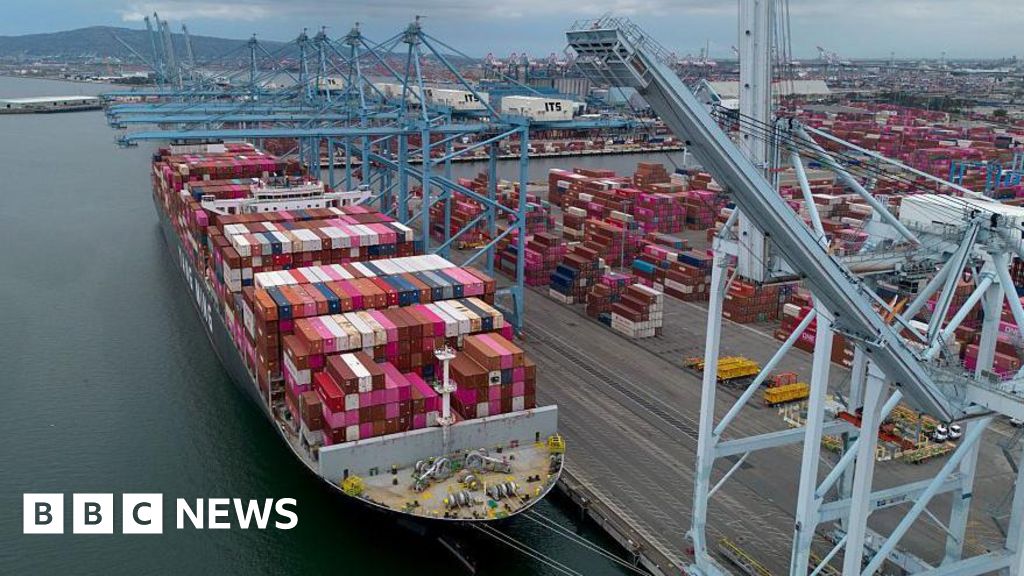Business reporter
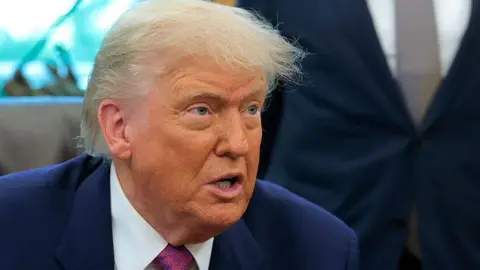 Getty Images
Getty ImagesUS President Donald Trump has said a deal with China “is done” after two days of talks between top officials in London.
Trump said that, subject to final approval from President Xi Jinping and himself, the US will get the rare earth metals it needs, while Chinese students can take up their places at American colleges.
Earlier, the US and China said they had agreed in principle a framework for de-escalating trade tensions between the world’s two biggest economies.
Last month, Washington and Beijing agreed a temporary truce over trade tariffs but each country has since accused the other of breaching the deal.
Posting on his Truth Social platform, the president said: “Our deal with China is done, subject to final approval with President Xi and me.
“Full magnets, and any necessary rare earths, will be supplied, up front, by China. Likewise, we will provide to China what was agreed to, including Chinese students using our colleges and universities (which has always been good with me!).”
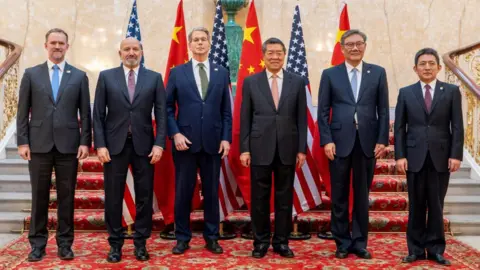 Getty Images
Getty ImagesChinese exports of rare earth minerals, which are crucial for modern technology, were high on the agenda of the meeting in London.
Following the talks, US Commerce Secretary Howard Lutnick said the deal between the two countries should result in restrictions on rare earth minerals and magnets being resolved.
The US has criticised China, saying it has been slow to release exports of rare earth metals and magnets which are essential for manufacturing everything from smartphones to electric vehicles.
Meanwhile, Washington has restricted China’s access to US goods such as semiconductors and other related technologies linked to artificial intelligence (AI).
“We have reached a framework to implement the Geneva consensus,” Lutnick told reporters.
“Once the presidents approve it, we will then seek to implement it,” he added.
The new round of negotiations followed a phone call between Donald Trump and China’s leader Xi Jinping last week which the US President described as a “very good talk”.
“The two sides have, in principle, reached a framework for implementing the consensus reached by the two heads of state during the phone call on June 5th and the consensus reached at the Geneva meeting,” China’s Vice Commerce Minister Li Chenggang said.
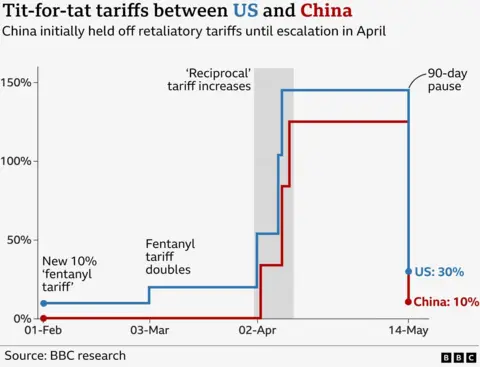
When Trump announced sweeping tariffs on imports from a number of countries earlier this year, China was the hardest hit. Beijing responded with its own higher rates on US imports, and this triggered tit-for-tat increases that peaked at 145%.
In May, talks held in Switzerland led to a temporary truce that Trump called a “total reset”.
It brought US tariffs on Chinese products down to 30%, while Beijing slashed levies on US imports to 10% and promised to lift barriers on critical mineral exports. It gave both sides a 90-day deadline to try to reach a trade deal.
But the US and China have since claimed breaches on non-tariff pledges.
US Trade Representative Jamieson Greer said China had failed to rollback restrictions on exports of rare earth magnets.
Beijing said US violations of the agreement included stopping sales of computer chip design software to Chinese companies, warning against using chips made by Chinese tech giant Huawei and cancelling visas for Chinese students.
Ahead of this week’s talks, the Chinese Ministry of Commerce said on Saturday that it had approved some applications for rare earth export licences, although it did not provide details of which countries were involved.
Trump said on Friday that Xi had agreed to restart trade in rare earth materials.


